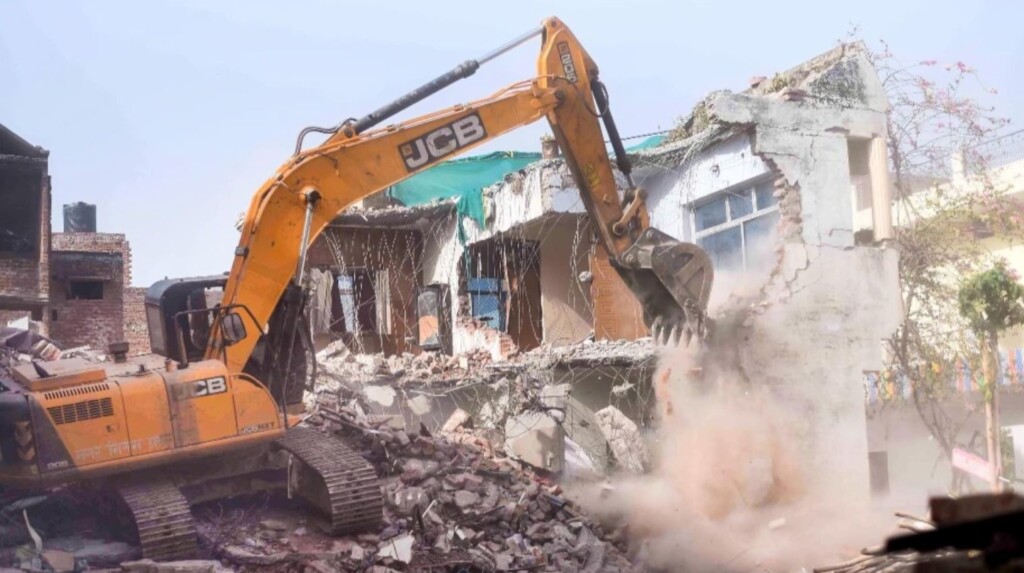New Delhi: The Supreme Court questioned how a house can be demolished only because it belonged to an accused person or even a convict in a criminal case, strongly criticizing “bulldozer justice” today. Prior to tearing down houses, the court also suggested a set of national norms for India to abide by.
Senior Advocate Dushyant Dave spoke on behalf of the petitioner and asked the court to issue an order to prevent “bulldozer justice” from being applied nationwide.
Solicitor General of India Tushar Mehta addressed the bench of Justices BR Gavai and KV Viswanathan, arguing that no immovable property may be destroyed simply because an accused person is suspected of committing a crime. “Such demolition can only happen if the structure is illegal,” said Mr. Mehta.
\Nonetheless, the Solicitor General said that the court is being misled about the situation.
“We will provide guidelines based on this, if you accept it. How is demolition merely because someone is charged with a crime or even found guilty?” Justice Gavai questioned.
“It’s okay if construction is not authorized. There has to be some simplification. We’re going to establish a protocol. It sounds like you only want to demolish anything if it violates local laws. Guidelines are required, and they must be recorded, the bench stated.
Justice Viswanathan questioned why laws couldn’t be created to prevent these kinds of situations. “First issue notice, give time to answer, time to seek legal remedies, and then demolition,” he stated.
The bench made it clear that it does not support building that is not permitted. “We will not protect any illegal structure obstructing public roads, that includes a temple, but there should be guidelines for demolition,” added the statement.
Senior Advocates Dushyant Dave and CU Singh brought up the demolition project in Delhi’s Jahangirpuri while representing the petitioners. The attorneys claimed that occasionally, rental property was demolished. “They demolished 50-60 year old homes because son or tenant of the owner is involved,” stated Mr. Singh.
The demolition of a home in Udaipur, Rajasthan, after a resident’s student stabbed a classmate, was another issue that came up. Justice Viswanathan declared, “Demolishing a man’s home is not the right way if his son is a nuisance.” The court announced that it will rehear the case on September 17 and asked for recommendations on how to approach this problem.
According to an affidavit submitted by the Uttar Pradesh government, immovable property can only be demolished in accordance with the legal process, according to Justice Gavai. “To ensure that the concerns expressed are addressed, we plan to establish some norms that apply to all of India. We are grateful for the UP state’s stance.”
Mr. Mehta and Mr. Dave got into a heated argument in the courtroom at one point. “Some Jamiat has come before your Lordships,” Mr. Mehta stated. Those whose homes were destroyed have not made contact.” Then, addressing Mr. Dave, he remarked, “If he wants to make it dirty…”
This elicited a pointed reply. “You usually hit below the belt, so don’t speak filthy. Act as though you are the Solicitor General, Mr. Dave said.
You can only listen to the newest music on JioSaavn.com.
Judge Gavai became involved as a result, pleading with the senior attorneys to refrain from using the courtroom as a battlefield.
Bulldozer justice, in which the homes of criminal defendants are demolished, has become more prevalent in a number of regions of the nation. Many have questioned how the action can be taken even before claims against a person are proven, and the practice has drawn harsh criticism. They have also made the case for why the government should penalize the entire family for a single crime.
